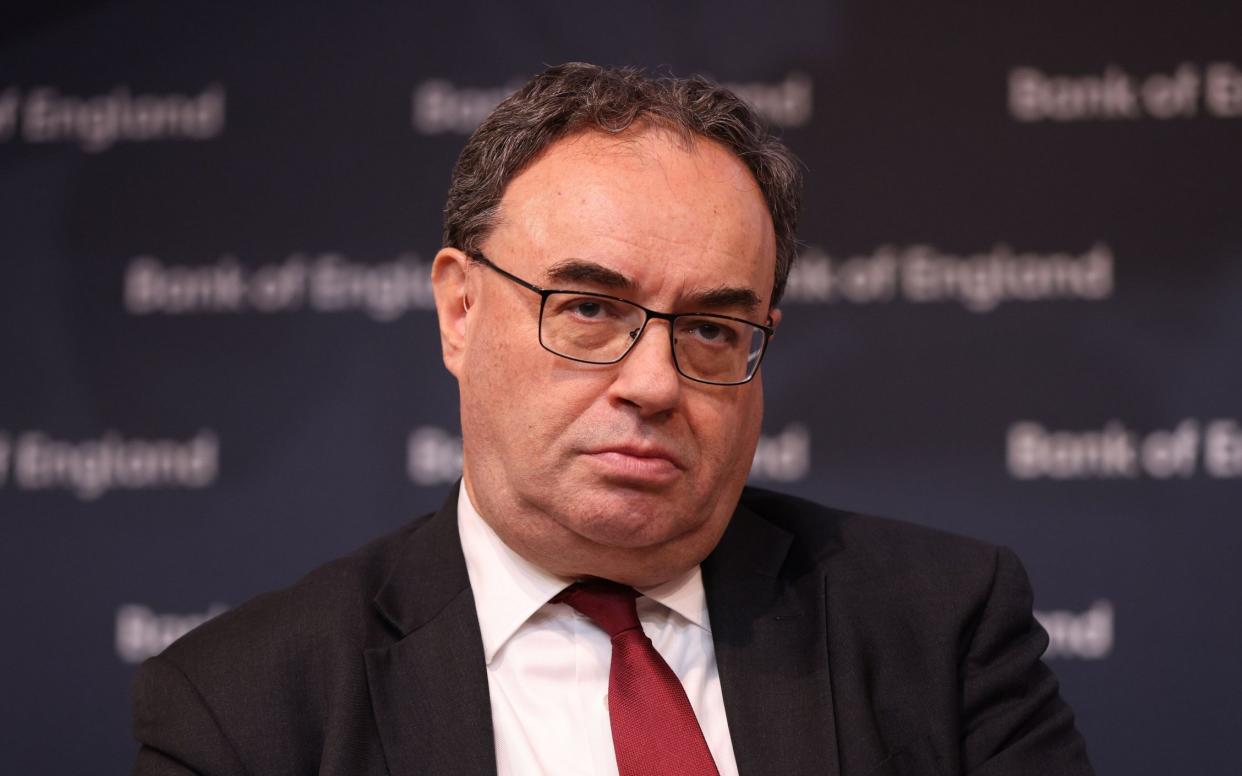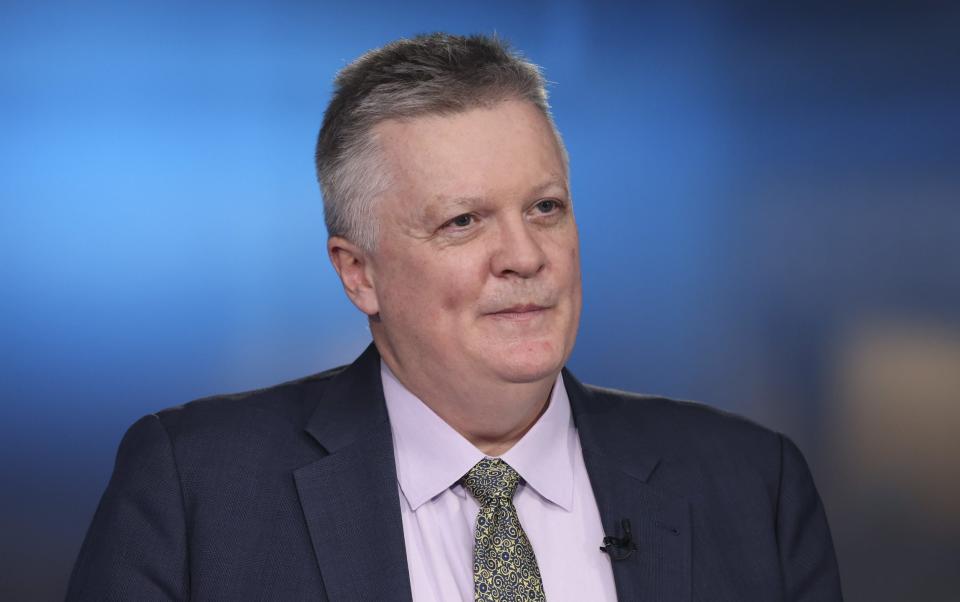Britain can’t afford another Bailey blunder

- Oops!Something went wrong.Please try again later.
There is “still a long way to go”. It is “too early to start cutting”, and there may even be “further tightening” in the months ahead.
When he announced that interest rates would remain on hold this week the Governor of the Bank of England, Andrew Bailey, made it clear that he wouldn’t follow the Federal Reserve in easing monetary policy.
The trouble is, however, there are signs of a recession anywhere you care to look.
Few people, except perhaps Bailey himself, would now deny that the Bank made a major mistake in letting inflation get out of control. And it now looks set to compound previous errors by triggering an unnecessary recession.
In reality, Britain can’t afford Bailey’s blundering any longer – and it can only be a matter of time before the Government is forced to bring to heel a central bank that has clearly lost its way.
The language was unmistakably hawkish. While leaving interest rates unchanged this week, Bailey made it perfectly clear that he didn’t see any scope for a cut any time soon.
Indeed, three members of the Monetary Policy Committee (MPC) actually voted to increase rates. And, of course, the Bank is still selling bonds back into the market, a form of reverse quantitative easing that tightens monetary policy even further.
That stands in stark contrast to the US, where the Federal Reserve has made it clear it sees rates coming down over the next few months as inflation eases. In the UK, the Bank will be tougher, for longer.
The trouble is, Britain is teetering on the edge of recession. We learned this week that output fell by 0.3pc in October. Retail sales dropped by 0.3pc, taking them down to the lowest level since the height of the pandemic.
The rate at which wages are rising declined sharply last month, from 8pc to 7.2pc, easing fears of a wage-price spiral despite outstripping inflation, and reducing the cost pressure on companies.
The number of job vacancies fell by 45,000 in the last month, a clear sign of a slackening labour market (and they would be going down even faster if the public sector payroll wasn’t still scandalously expanding to make up for collapsing productivity).
Perhaps most significantly of all, even though the economists at the Bank no longer pay much attention to it, the money supply has gone into freefall. Meanwhile, the eurozone, which remains our largest trading partner, is in an economic tailspin.
In fairness, there are a few bright spots, such as slightly better consumer confidence figures released on Friday. But without bold plans to shrink the state and grow the economy, the UK will struggle even to stand still next year, and could well find itself contracting.
The Government will be partly to blame, of course, if that is what happens. It hiked business taxes, crushing enterprise, while freezing thresholds has destroyed the incentive to work.
But the Bank’s monetary policy was too loose during the pandemic, and the MPC was far too slow to raise rates, eventually doing so in December 2021. The last thing the economy needed when we are all forced to stay at home doing nothing, and the supply of goods and services collapsed, was for the cost of borrowing to be cut while the money printers were sent into overdrive. Sharply rising inflation was the inevitable result.
Rather than take swift action, the Bank and its followers blamed “greedy” companies or “selfish” workers. It lectured the former on pricing structures, and the latter on resisting the urge to request a pay rise. Now, it is keeping interest rates too high, choking demand within the economy, while pursuing a risky course of quantitative tightening.
Every central bank makes mistakes occasionally. Fine-tuning interest rates, and getting an accurate sense of how the economy is performing, is a difficult task and no one can expect a single institution to get it right all the time.
Indeed, the Bank has implicitly acknowledged it may have got a few of its calls wrong by appointing the former Fed chair Ben Bernanke to lead a review of its decisions over the course of the pandemic.

Will it learn from previous mistakes, when it’s on the cusp of another major blunder? At a certain point, one has to wonder whether the Chancellor will step in. It is surely intolerable to leave the economy at the mercy of an institution that keeps on getting the major calls completely wrong.
The Bank may be independent, but that is a fairly recent innovation, dating back only to Gordon Brown’s first week as Chancellor in 1997. The Treasury still has plenty of power to intervene. It retains the power to fire Bailey, and replace him with someone with more credibility, and better judgement (the Bank’s chief economist, Huw Pill, would be an obvious choice, and his predecessor, Andy Haldane, even more so).
Alternatively, an open letter from the Chancellor stating clearly that interest rates are higher than the economy can cope with would at least make the Government’s position clear, tightening the screws on the MPC.
The Bank ultimately started to lose its way under the self-regarding and inept management of Mark Carney. It has become even more dysfunctional under Bailey, creating an upsurge in inflation, and now risking a perhaps avoidable recession as it struggles to regain its reputation for sound money.
The British economy is in enough trouble without monetary policy failures; the public finances can’t take the strain, and living standards can’t take another hit.
One point is surely clear. If there is a recession next year, then Bailey will have to go – and the Bank will need wholescale reform under a new governor.

